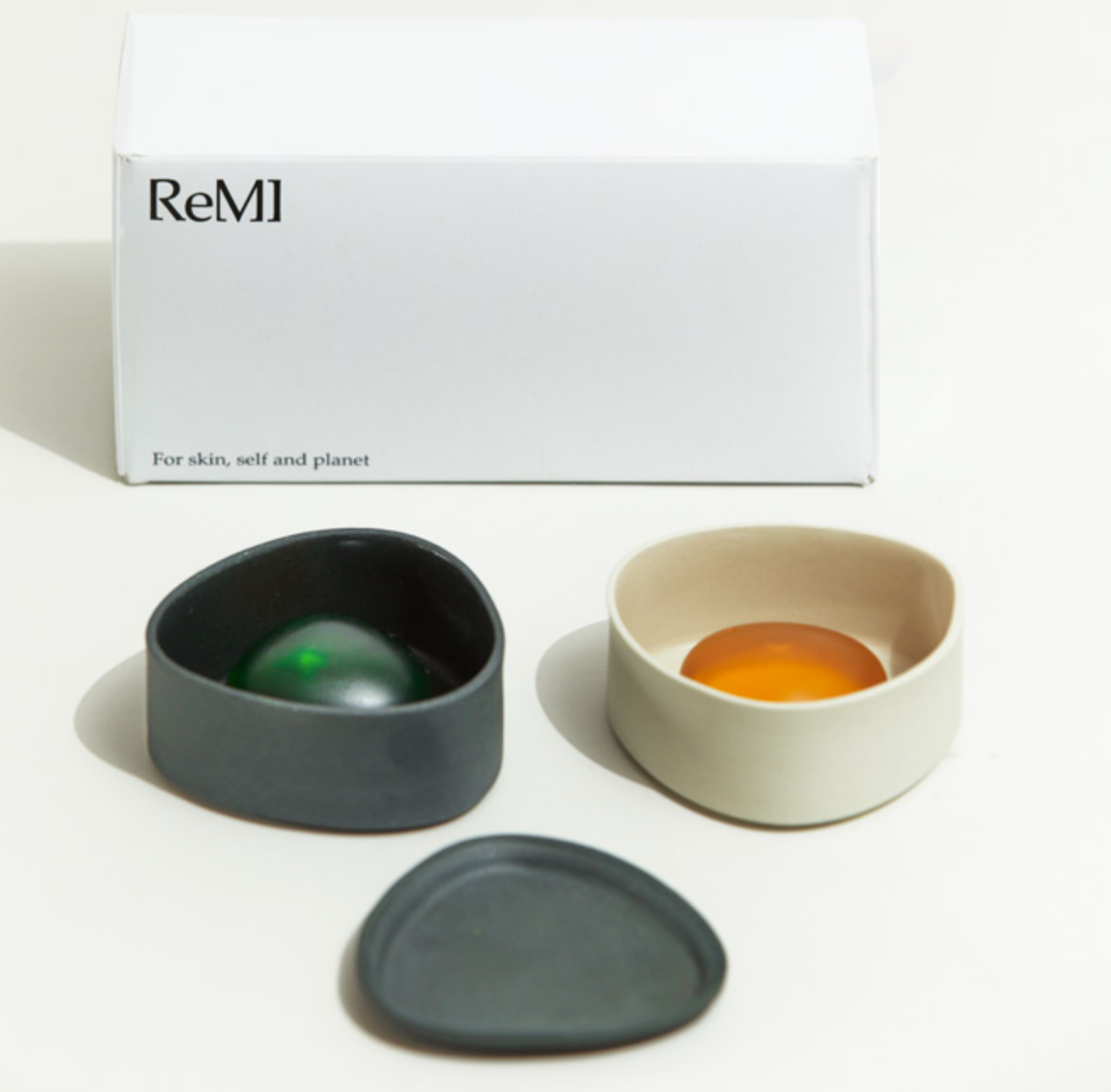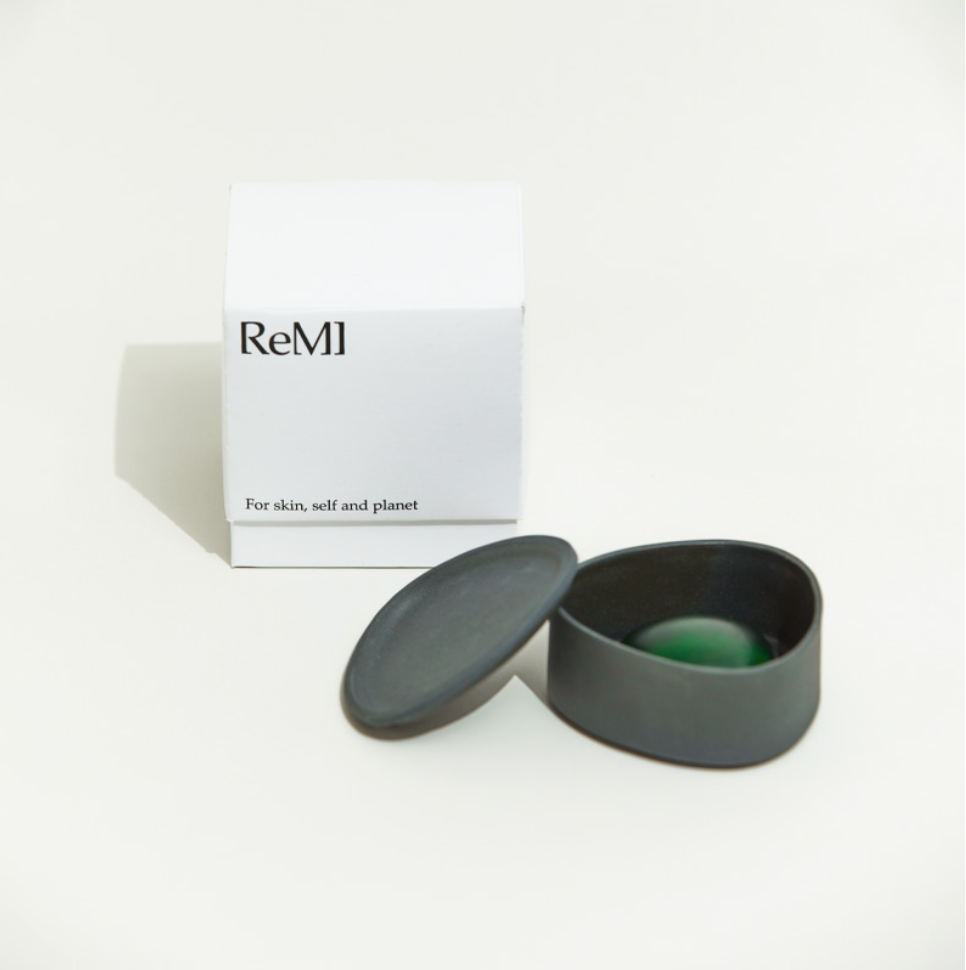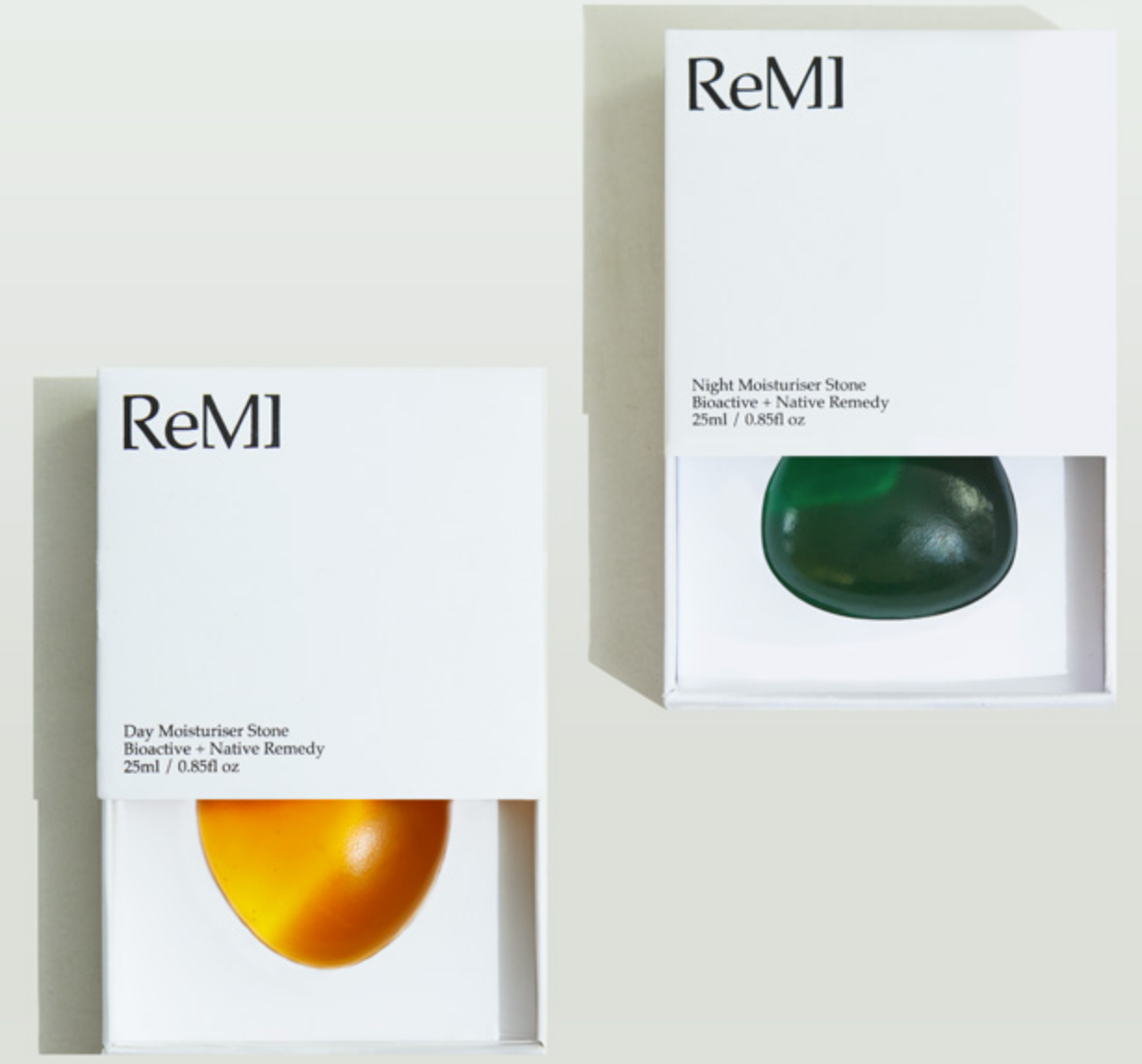


When you entered the Bathroom the only thing you saw was Plastic, there was a lot of it. Shampoos, conditioners, body washes, makeup, lotion—you name it. Though Kiyounf Sung(Founder of Remi) was a ten-year veteran of companies like P&G, Colgate Palmolive, and other beauty and personal care brands, it struck her at that moment how pervasive the plastic crisis is. What had become a necessary ritual was now a source of guilt. “It just made me really angry that we kind of let this happen,” she explains. “It's in our life that we basically created this plastic crisis for ourselves and our children, and I think that's when it hit me personally.”
That moment you led Sung to kickstart ReMI, a plastic-free, condensed, and waterless skincare brand. By developing a beauty product in a solid format that was smaller, she could minimize packaging while also dramatically reducing shipping. Your typical skincare product usually contains 70-90% water; with ReMI, you get a concentrated solid 4-in-1 skincare bar that serves as a moisturizer, eye cream, face oil, and lip conditioner. But while consumers are hungry for more sustainable options, there still comes a learning curve when adopting these products as it’s not a format most folks are familiar with.
In crafting that experience, they needed to elevate the category, and they primarily did this with packaging. Specifically, they looked to ceramics to create that lasting impression.
“It's very functional and durable, even in a bathroom where it can get wet,” she says. “Everything's from natural resources. It's clay. And so it's got this longevity, and the idea is that they'll be able to use it for decades. You know, I plan to pass this on to my kids. Handmade ceramics have a warmth to them that I don't find in other materials. Knowing that somebody has made this in our studio is a special experience that we wanted to have in our skincare and to complete the sustainability story.”
Wanting to keep things local, they sought out a nearby ceramicist, Ryan L Foote, who happened to be less than two miles down the road. Compared to your typical skincare brand, they would likely import a bottle from China (they’re based in Melbourne) and run it down a factory line. With ReMI, everything is handmade in their lab, even the packaging.
Not only is Foote a ceramic artist, but he has a side hustle making chocolate and designing the molds he uses for his sweet treats. Using a slip cast method, pouring liquid clay into a plaster mold, they were able to create more complex shapes—in this case, the tri-lobular construction they have used for the skincare stone’s forever home on your countertop. What’s more, the ceramic containers are stackable, perfect for both ReMI products, a day and nighttime moisturizer. Go to the bottom of each ceramic case, and you’ll find the brand name. That makes for a refreshing brand touchpoint, as ReMI doesn't need to scream its name from the safety of your sink. Instead, it makes its presence known by owning its shape. “We felt that the tri-lobular shape is unique, and we think of it as the brand icon. And when people use it, they'll know it's ReMI. We don't need to hit them over the head with a brand logo.”
Presentation aside, let’s not forget the most critical results the brand can deliver. If there’s less water and packaging shipping around and you’ve minimized the actual product itself, you significantly decrease your carbon footprint. That the product is also plastic-free is just icing on the cake.
Plastic-free solutions in beauty and personal care are difficult to bring to market, and as Sung notes, it’s even more of a challenge for established brands. Yes, they want to develop more sustainable options for consumers, but cost continues to drive the narrative for many of them, resulting in the same old cheap plastics coming to market. But if new brands like ReMI continue to challenge the status quo, maybe the likes of Unilever or P&G will finally catch on and give consumers something they genuinely need.






